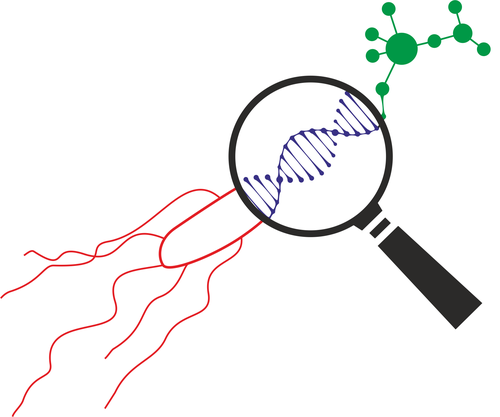Food-borne diseases remain a major cause of morbidity and mortality worldwide, representing major threats to human health. They spread through animal populations, especially livestock, via the food chain to humans making an effective trans-sector “one health approach” essential for their control. Molecular typing and characterization of food-borne pathogens is increasingly applied worldwide for public health protection in relation to outbreak investigation, risk assessment and source attribution.
The advent of next generation sequencing (NGS) technology for decoding at the nucleic acid level entire bacterial genomes revolutionized diagnostic molecular typing approaches worldwide. Bacterial whole genome sequencing (WGS) provides the opportunity to perform high-resolution bacterial strain characterization and identification using a single universal technique for application in routine surveillance, outbreak investigation and epidemiological studies.
The aims of our project are to learn and discuss recent advances in the fields of genomics and the use of WGS in surveillance and outbreak investigation of food pathogens. Students receive a five-day theoretical and practical training about application of WGS in surveillance of foodborne pathogens. The theoretical part comprises introductory lectures to the typing of foodborne pathogens and their use in molecular epidemiology including outbreak investigations. Furthermore, the technical methods for sequencing of bacterial isolates is discussed as well as bioinformatics analysis of WGS data.
During a hands-on training unit the students learn the sequencing procedure including DNA and library preparation of bacterial strains and the loading of the MiSeq instrument in the laboratory. Sequenced samples will be analysed for their quality and bioinformatics tools are learned to identify antimicrobial resistance markers and to investigate the phylogenetic relationship of the isolate.
We are delighted to use de.NBI Cloud for more than one year. We are very positive to the reliable service, excellent management and support to keep running our requested VMs. For analysing large amounts of genome data, the de.NBI Cloud is an excellent opportunity for every scientist missing own compute resources. It enables us to work on a project with our partners. Our bioinformaticians truely love to use it

